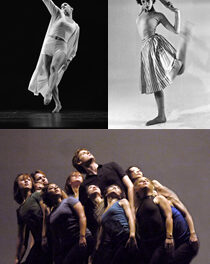Franz Schubert’s (1797-1828) song cycle Winterreise (Winter Journey), sometimes mistitled as “Die Winterreise,” as was the case in the program for this performance, is unquestionably a monumentally-important work in the history of classical music. The list of great singers who have performed and recorded it is long, despite its hour’s duration; it is cited in glowing terms by musicologists as the finest or one of the finest examples of solo vocal literature.
The poetry, by Wilhelm Müller (1794-1827), depicts the thoughts of a rejected lover as he leaves the home of his beloved on a journey which has no destination. Many of the poems are depressing in mood: thoughts which might well have spoken with particular poignancy to Schubert, who may well have realized that his own life was nearing its end. The emotional depth of the cycle is palpable; not a single measure of music is trivial or out of place.
Baritone Marc Callahan and pianist Keiko Sekino collaborated in a superb performance of the 24 songs of Winterreise at Meredith College‘s Carswell Concert Hall, reprising their 2017 reading in a smaller Raleigh venue. That earlier performance, which I was fortunate to attend, was excellent; this one was even better.
No matter how many times one performs a truly-great musical work, one continues to find new beauties within it and new insights into the composer’s own thoughts in creating it. Such a work is Winterreise. Callahan, Assistant Professor of Music at the University of North Carolina at Chapel Hill, communicated not only with his richly-colored voice but also with subtle movements of eyes, arms, hands, and stance, reminiscent of tenor Ian Bostridge’s notable interpretation. These gestures were never overdone but served to draw the audience deeper into the journey.
Callahan’s voice is even and flexible throughout its wide range; he is able to achieve tonal dynamics from caressing mezzo voces to fortissimo dramatic essays, all with enviably-clear diction. This is a voice from which we can expect the finest of performances, from lieder through opera.
In Schubert’s songs, a pianist is not an “accompanist” but a true collaborator. The piano scores of these 24 songs draw their inspiration from the same poetical texts being sung by the vocalist. Pianist Sekino, on faculty at East Carolina University, was in unison with Callahan in their interpretations. Her flawless technique brought out Schubert’s piano commentaries on the texts with ease, making a particularly strong impression as she negotiated the rhythmic repetitions in “Die Post,” where Schubert conjures the mail-carrier’s post horn. Balance between voice and piano was generally good, save for the several times when the nine-foot Steinway’s sound was too large for Callahan’s lighter-voiced passages. While the piano was on its “short stick,” use of a block instead of the wider opening between the piano strings and its lid would alleviate the imbalances.
Each of the 24 songs being performed so well makes highlighting any one of them difficult. That said, I was particularly moved by the pianissimo ending of the first and fifth songs (“Gute Nacht” and “Der Lindenbaum”), the emotional tautness and full range of vocal dynamics of the seventh song (“Auf dem Flusse”), Callahan’s use of his eyes to make the audience see the crow which was following him (the fifteenth song, “Die Krähe”), and Sekino’s moving presentation of the chorale-like opening and interludes in the twenty-first song (“Das Wirtshaus”).
Schubert found in Müller’s poems a voice for his deepest thoughts, likely of his approaching death. Yet, absorbed in this final sad journey, he still found beauty after beauty. Callahan and Sekino, taking us along with the traveler, found those beauties and brought them to life in this superlative-worthy performance.











